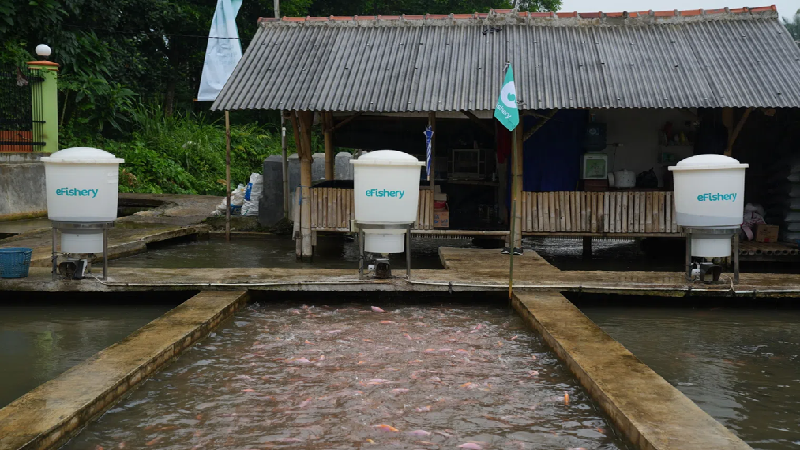Indonesia unicorn eFishery allegedly faked almost US$600 million of its sales
Published Wed, Jan 22, 2025 · 09:55 AM — Updated Thu, Jan 23, 2025 · 12:14 AM

ONE of Indonesia’s most prominent startups, eFishery, may have inflated its revenue and profit over several years, according to an internal investigation triggered by a whistleblower’s claim about the company’s accounting.
A preliminary, ongoing probe into the agritech startup, backed by investors including SoftBank Group and Temasek Holdings, estimates that management inflated revenue by almost US$600 million in the nine months to September last year, according to a 52-page draft report circulated among investors and reviewed by Bloomberg News. That would mean more than 75 per cent of the reported figures were fake, the report said.
A darling of the nation’s startup scene, eFishery, which deploys feeders to fish and shrimp farmers in Indonesia, scored a valuation of US$1.4 billion when G42, an AI firm controlled by United Arab Emirates royal Sheikh Tahnoon bin Zayed Al Nahyan, backed its latest funding round.
It has raised hundreds of millions of US dollars in an attempt to modernise the country’s fish industry, providing farmers with smart feeding devices as well as feed, and then buying their produce to sell into the broader market.
Investors were initially enticed by its profitability at a time when layoffs, CEO resignations and plummeting valuations in the tech sector dominated headlines. It presented a US$16 million profit for the first nine months of 2024 to investors, but the investigation commissioned by the board alleges the firm actually generated a US$35.4 million loss.
Revenue for the period was estimated at US$157 million, rather than the US$752 million investors were told, according to the report. Management also inflated revenue and profit numbers for several previous years, the report said.
The report was initiated after a whistleblower approached a board member with allegations that the accounts were not accurate, according to sources familiar with the matter.
The board then commissioned a formal investigation in December, and dismissed co-founder and CEO Gibran Huzaifah after the accounting inconsistencies were discovered, the sources said.
“We are fully aware of the gravity of the market speculation and we take this matter with the utmost seriousness,” eFishery said. “We remain dedicated to upholding the highest standards of corporate governance and ethics in all of eFishery’s operations.”
The report, authored by FTI Consulting, is marked as a draft and subject to further changes as the investigation continues. It’s based on more than 20 interviews with company staff and reviews of accounts and messages on WhatsApp, Slack and other channels, according to the report.
The draft report notes that investigators have not yet spoken with the auditors or reviewed any audit workpapers or other documentation. The numbers are likely to change further, with bank statements, interviews and other accounts still yet to be found or completed.
Huzaifah did not respond to messages seeking comment. Temasek and SoftBank declined to comment, while representatives of FTI and G42 did not immediately respond to queries.
Shareholders and directors have been surprised at the scale of the alleged fraud given the protective measures that were put in place, including channel checks and exit interviews of staff, said one of the sources, who asked not to be named as the matter is private.
The agritech startup had previously hired PricewaterhouseCoopers and Grant Thornton to audit financial results. The two accounting firms did not respond to requests for comment.
Investor calls have been taking place since the investigation began and the key question will be what to do with the company’s assets and remaining cash, one of the sources said.
While eFishery said it had over 400,000 fish feeders in operation at customers, initial investigations estimate it only had about 24,000.
In total, internal books show retained losses at roughly US$152 million from its inception until November 2024. While the total assets of the firm stand at US$220 million, this includes US$63 million in accounts receivable and US$98 million in investments, according to the report.
The allegations of fraud may be damaging for Indonesia’s startup scene, and come at a critical time as young companies and investors in the country struggle to raise new funding. BLOOMBERG





